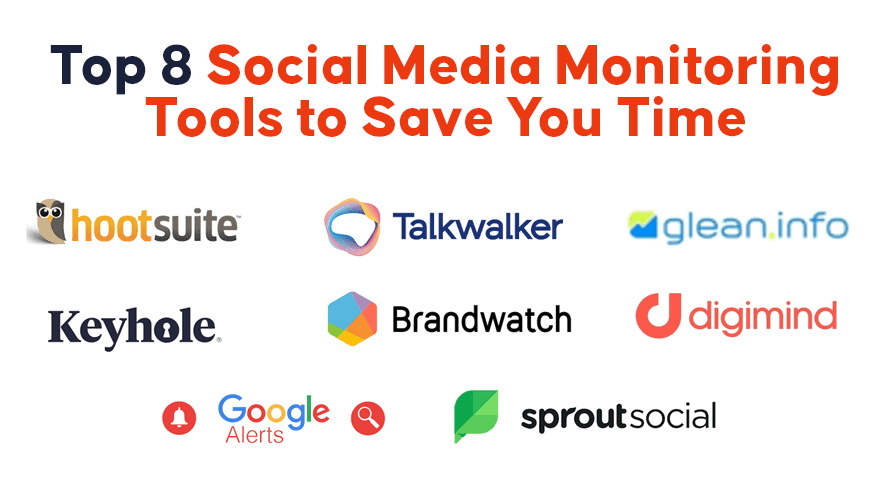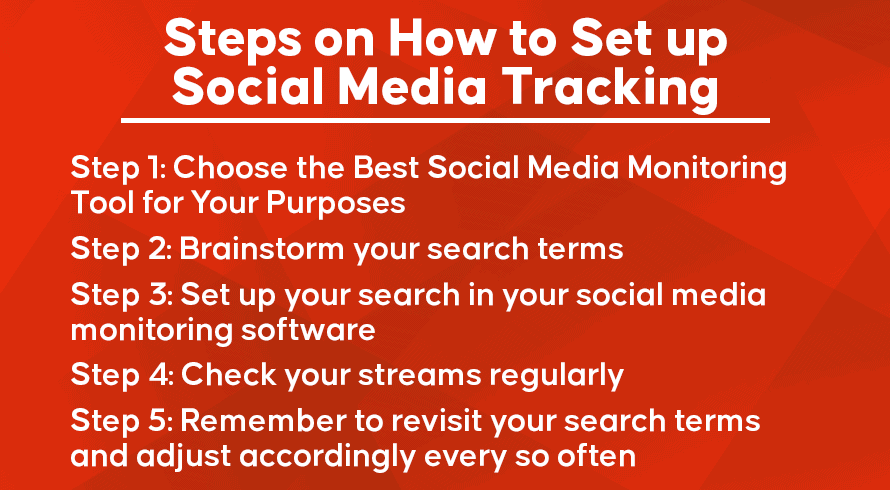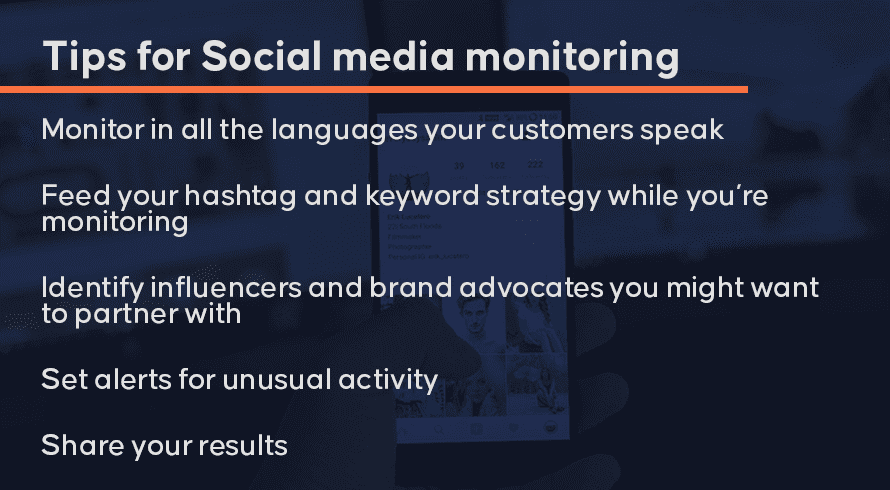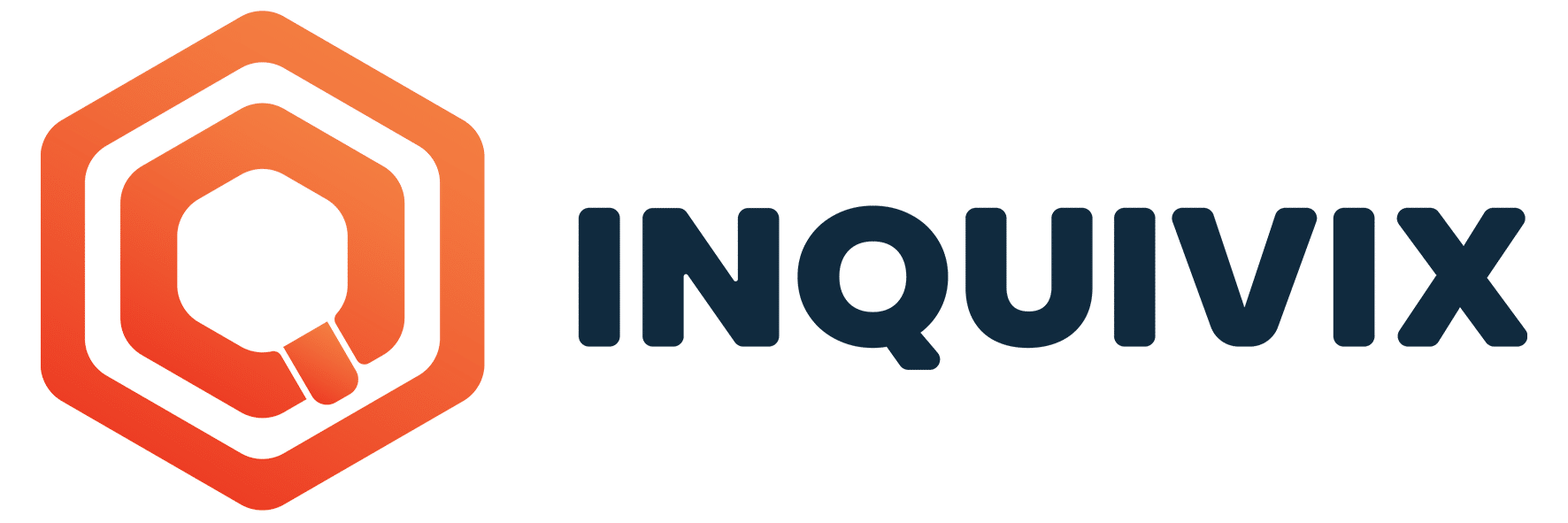Inquivix HQ
1-903, 18 Eonju-ro 146-gil,
Gangnam-gu, Seoul, Korea
06057

Social media tracking is necessary for every business to assess its performance. Social media platforms are the preferred way for many people to communicate with friends, family, colleagues, and brands. What makes social media unique is that it encourages interaction between users.
Social networks allow people everywhere in the world to share their thoughts, feelings, and emotions with one another in real-time via posts, tweets, images, videos, and more. That is why these social platforms are highly targeted by businesses. However, to gain the best out of them, social media marketers should maintain constant social monitoring. The information from social media analytics will help with a business’s social media marketing campaigns.
What Is Social Media Tracking?
Social media tracking is the process of monitoring online conversations and user interactions on social media platforms to understand how people are talking about your brand, products, or services. This information can be used to improve marketing and advertising efforts, customer service, product development, and more. It involves identifying key influencers and key decision-makers, finding out what features they like best about your products or services, and discovering ways to improve them.
Why Do Brands Need a Social Media Monitoring Strategy?
There are many reasons why businesses need to have a social media monitoring strategy. One is that it will allow you to gather information for future reference. The more information a business has, the better it can adapt to changes and improve its market position in the long term.
Social media monitoring also allows a business to get a better picture of what it is that their audience likes or dislikes about their brand, products, or services. This can help a business make decisions regarding marketing campaigns, product development, and more. Monitoring social media discussions related to your business can provide a brand with many growth opportunities.
In the event of a crisis on social media, such as a recall or corruption scandal, it is important for businesses to know about this quickly so that they can take appropriate measures. Doing nothing is not an option in this case because ignoring the problem will only increase the damage that it can cause.
How Does Social Media Tracking Affect Ecommerce Businesses?
Today’s technology enables businesses to harness the power of social media. For eCommerce companies, this means that they can benefit much more from word-of-mouth marketing, referrals, and reviews because these are key components in influencing customers’ online purchases. When consumers see that many people have positive things to say about a product via their social networks, they are more likely to purchase the product.

The power of social media monitoring for eCommerce companies can be clearly seen in the statistics. According to research, 90% of consumers have said that positive reviews influenced their decision to buy a product online. That means nine out of ten people won’t buy an item unless positive reviews are associated with it. With this, it is evident that social media monitoring is a necessary practice for any eCommerce business.
Top 8 Social Media Monitoring Tools to Save You Time
Social media monitoring can be very challenging for businesses, especially with every business expected to be active on different social media platforms. Here’s a list of the most popular social media monitoring tools you can use to track your social media performance.
Hootsuite
HootSuite is a social media management application that can be used to manage multiple social media accounts from different networks. With HootSuite, users can schedule posts and tweets, view all their messages in one place, track mentions of business names or keywords, listen for online conversations relevant to their brand, and more.
Talkwalker
Talkwalker is a social media monitoring and analytics platform that allows businesses to track online conversations in real-time and measure their impact. It also provides insights into who is talking about a brand, what they are saying, and where the conversation is happening.
Keyhole
Keyhole is a social media monitoring and hashtag tracking tool that lets businesses track all the conversations around their brand, products, or services in real-time. It also measures the reach and engagement of those conversations.
BrandWatch
Brandwatch is an enterprise-level platform that allows users to monitor conversations as they happen. From its dashboard, business owners can easily track the sentiment, volume, and demographic statistics of online conversations taking place about their brand or products. Additionally, it also lets businesses find influencers in any industry who are worth engaging with.

Glean.info
Glean.info is a social media monitoring and analytics tool that helps businesses track their brand’s presence across the web. It collects data from over 100 million sources and provides users with insights into who is talking about their brand, what they are saying, and where the conversation is taking place.
Digimind
Digimind is a social media monitoring tool that allows users to track conversations in over 100 languages. It also enables businesses to engage with consumers directly by suggesting relevant conversations based on keywords or hashtags. Additionally, it has tools that businesses can use to monitor competitors or look up industry mentions.
Google Alert
Google Alerts is a free tool that allows users to track certain keywords in real-time. Once the user sets up an alert for these keywords, Google will send them relevant results from across the web in an everyday digest.
Sprout Social
Sprout Social is a social media management tool that enables businesses to access their messages from multiple networks all in one place. It also provides analytics for brand mentions and influencer identification so business owners can take appropriate action.
Steps on How to Set up Social Media Tracking
The following stages will guide you on how to set up social media tracking for your business.
Step 1- Choose the Best Social Media Monitoring Tool for Your Purposes
When looking for a social media monitoring tool, it is important to consider what you need the tool to do. If you are only interested in tracking mentions of your brand or product, then a tool like Hootsuite or Talkwalker will suffice. However, if you want more in-depth insights into online conversations, then tools like Brandwatch or Digimind will be more suitable.
Step 2 – Brainstorm Your Search Terms
Once you have chosen the social media monitoring tool that is right for you, it is time to brainstorm the keywords and phrases you want to track. These could be general terms related to your brand or product, specific product names, or hashtags associated with a campaign.
Step 3 – Set Up Your Search in Your Social Media Monitoring Software
Depending on the tool that you have chosen, make sure to input all of your keywords and phrases before setting up any searches. Additionally, make sure the tool allows for search from specific time periods or past conversations. Some tools may not allow users to set up searches this way, so you may need to use a combination of different tools to get the most comprehensive data.

Step 4 – Check Your Streams Regularly
Once your searches are set up, it is important to check your streams regularly to see what people are saying about your brand and product. This can be done daily, weekly, or monthly, depending on your business’ needs.
Step 5 – Remember to Revisit Your Search Terms and Adjust Accordingly Every So Often
As with any other form of marketing, social media monitoring requires ongoing maintenance. The keywords and phrases you track may need to be adjusted over time as consumer conversations change. Make sure to revisit your searches regularly and make the necessary changes to keep track of the conversation around your brand.
Tips for Social Media Monitoring
The following tips will help you get the most out of your social media tracking.
Monitor in All the Languages Your Customers Speak
In social media tracking, it is important to track the conversations that matter most to you. This includes languages that your customers speak so that any appropriate conversations can be translated and taken into consideration.
Feed Your Hashtag and Keyword Strategy While You’re Monitoring
Make sure not to neglect your hashtag and keyword strategies during social media tracking. The data collected from monitoring can help to inform these strategies and improve their effectiveness.

Identify Influencers and Brand Advocates You Might Want to Partner With
Monitoring conversations can help you identify key individuals who are influential about your brand or product. These influencers could be potential partners for future marketing campaigns or collaborations.
Set Alerts for Unusual Activity
One of the benefits of social media monitoring is being able to quickly identify and address any negative sentiment or online crises. Setting alerts for specific keywords or phrases can help you do this more effectively.
Share Your Results
Once you have collected data from your social media monitoring, it is important to share it with the appropriate people in your company. This data can help to inform business decisions and improve the overall effectiveness of your social media strategy.
Conclusion
Social media monitoring can help businesses to improve their social media strategies. Social listening will give you valuable data on your social media posts, audience insights, brand sentiments, user-generated content, and many more. It is essential to use social media monitoring tools to track the activity on your social channels.
Using suitable social media management software for your business is very effective in your social media campaigns. While there are many tools out there, it is important to choose one that suits your needs the best. When setting up your search terms, remember to think about what you want the tool to do for you and whether it will be effective in collecting the data that you need. Finally, sharing your actionable insights with the right people in your company can help to improve business decisions and inform future strategies.
